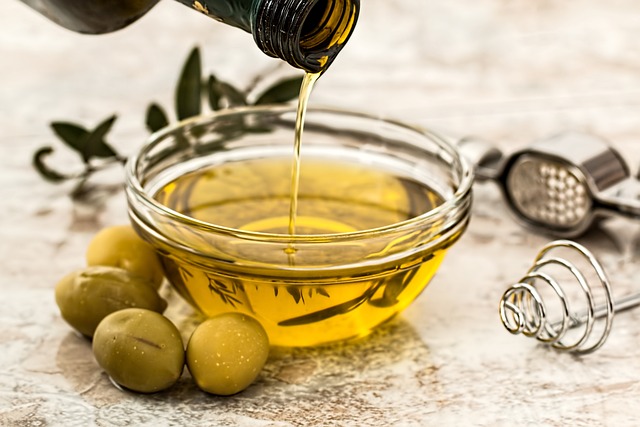
High cholesterol is a common health concern, but the right dietary choices can make a significant difference. Fruits, rich in fiber, antioxidants, and essential nutrients, can help manage cholesterol levels naturally. However, not all fruits are equally beneficial for those monitoring their cholesterol levels.
In this article, we’ll explore the best fruits to lower cholesterol, which fruits to enjoy in moderation, and those to avoid if you have high cholesterol.
Which Fruits Are Best to Reduce Cholesterol?
1. Apples
Apples are rich in soluble fiber, particularly pectin, which binds to cholesterol in the digestive system and helps remove it from the body. Regular consumption can reduce LDL (bad cholesterol) levels.
How to Enjoy:
- Eat an apple as a snack.
- Add apple slices to oatmeal or yogurt.
2. Berries
Berries like strawberries, blueberries, raspberries, and blackberries are packed with antioxidants and fiber. They not only help lower cholesterol but also reduce inflammation and protect heart health.
How to Enjoy:
- Blend them into smoothies.
- Add to salads or desserts.
3. Avocados
Though technically a fruit, avocados are an excellent source of monounsaturated fats and fiber, both of which are known to reduce LDL cholesterol and increase HDL (good cholesterol).
How to Enjoy:
- Spread avocado on whole-grain toast.
- Add slices to salads or sandwiches.
4. Citrus Fruits
Oranges, grapefruits, and lemons are high in pectin and vitamin C, which help lower cholesterol and improve heart health.
How to Enjoy:
- Drink fresh orange juice (unsweetened).
- Use lemon juice as a salad dressing.
5. Pears
Pears are another excellent source of soluble fiber, which helps reduce cholesterol levels by preventing its absorption into the bloodstream.
How to Enjoy:
- Eat them raw as a snack.
- Bake pears with a sprinkle of cinnamon for a healthy dessert.
6. Bananas
Bananas are high in potassium and contain soluble fiber, which helps regulate cholesterol levels and maintain healthy blood pressure.
How to Enjoy:
- Add bananas to smoothies or oatmeal.
- Enjoy as a quick snack.
7. Grapes
Rich in polyphenols and soluble fiber, grapes are known to reduce LDL cholesterol levels and improve heart health.
How to Enjoy:
- Eat them fresh.
- Add to fruit salads.
Fruits to Avoid with High Cholesterol
While most fruits are heart-healthy, some should be consumed in moderation if you’re managing high cholesterol:
1. Canned Fruits in Syrup
Canned fruits are often packed in sugary syrups, which can lead to weight gain and increased triglyceride levels—factors that negatively impact cholesterol.
Tip: Opt for fruits canned in water or their natural juice.
2. Fruit Juices with Added Sugar
Commercial fruit juices often contain added sugars, which can increase triglycerides and contribute to high cholesterol levels.
Tip: Stick to freshly squeezed juice or whole fruits.
3. Fried Fruits
Deep-fried banana chips or other processed fruits can be high in unhealthy fats, which may increase LDL cholesterol levels.
Tip: Choose dried fruits without added sugar or oils.
4. Dried Fruits in Excess
While dried fruits like apricots and raisins are nutrient-dense, they are also high in natural sugars and calories. Consuming them in large quantities may lead to weight gain, indirectly affecting cholesterol levels.
Tip: Limit portions to a small handful.
Why Fruits Help Lower Cholesterol
Fruits are rich in soluble fiber, which binds to cholesterol and prevents its absorption. They also contain antioxidants, which reduce oxidative stress and inflammation, contributing to better heart health. Additionally, fruits are naturally low in saturated fats and calories, making them a healthy choice for managing cholesterol.
FAQs on Fruits and Cholesterol
Can Fruits Alone Lower Cholesterol?
While fruits can significantly contribute to lowering cholesterol, combining them with a heart-healthy diet that includes whole grains, lean proteins, and healthy fats is essential.
How Many Servings of Fruits Should I Eat Daily?
Aim for at least 2-4 servings of fruits daily as part of a balanced diet.
Conclusion
Fruits are a natural and delicious way to manage cholesterol levels. Opt for heart-healthy options like apples, berries, avocados, and citrus fruits, while limiting canned fruits, sugary juices, and fried options. By incorporating the right fruits into your diet, you can enjoy better heart health and overall well-being.
Make small changes today, and let nature’s bounty work wonders for your heart!

